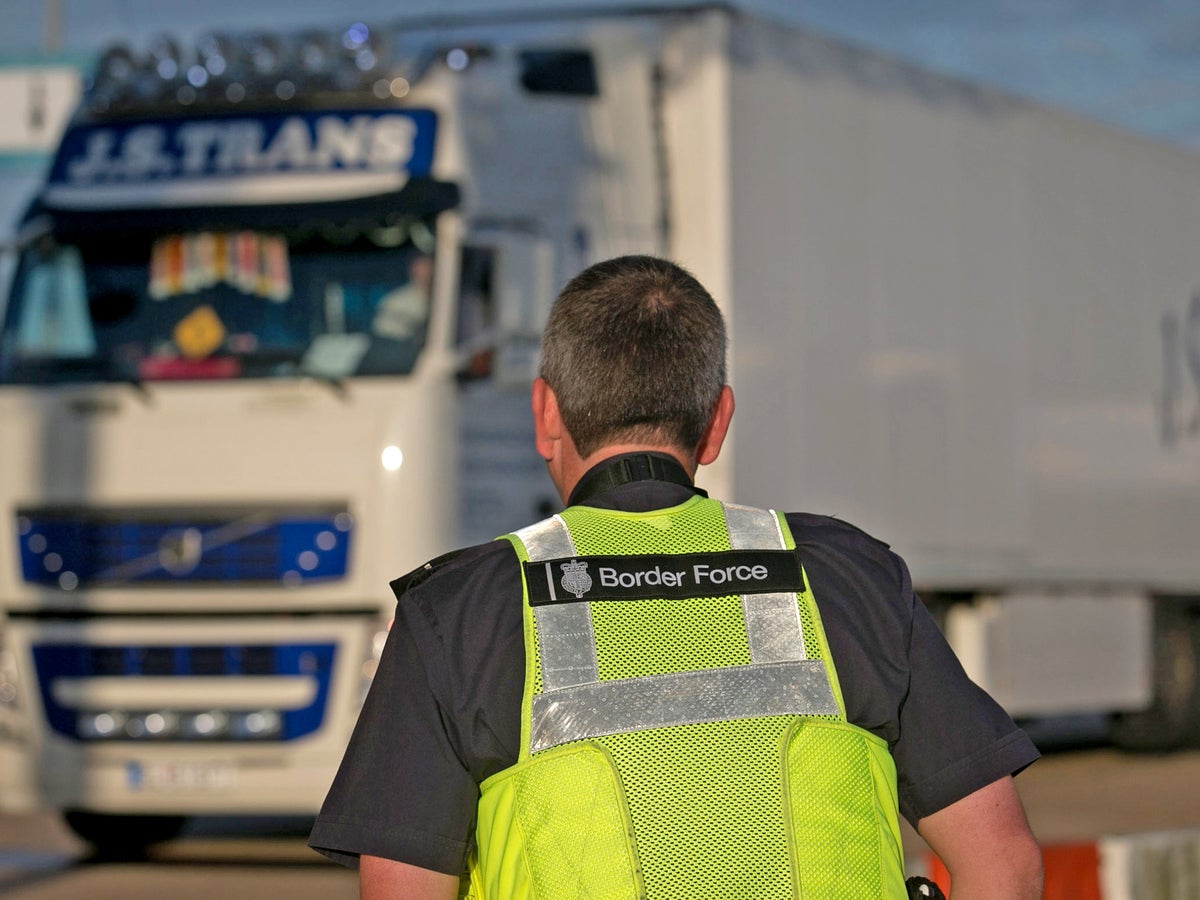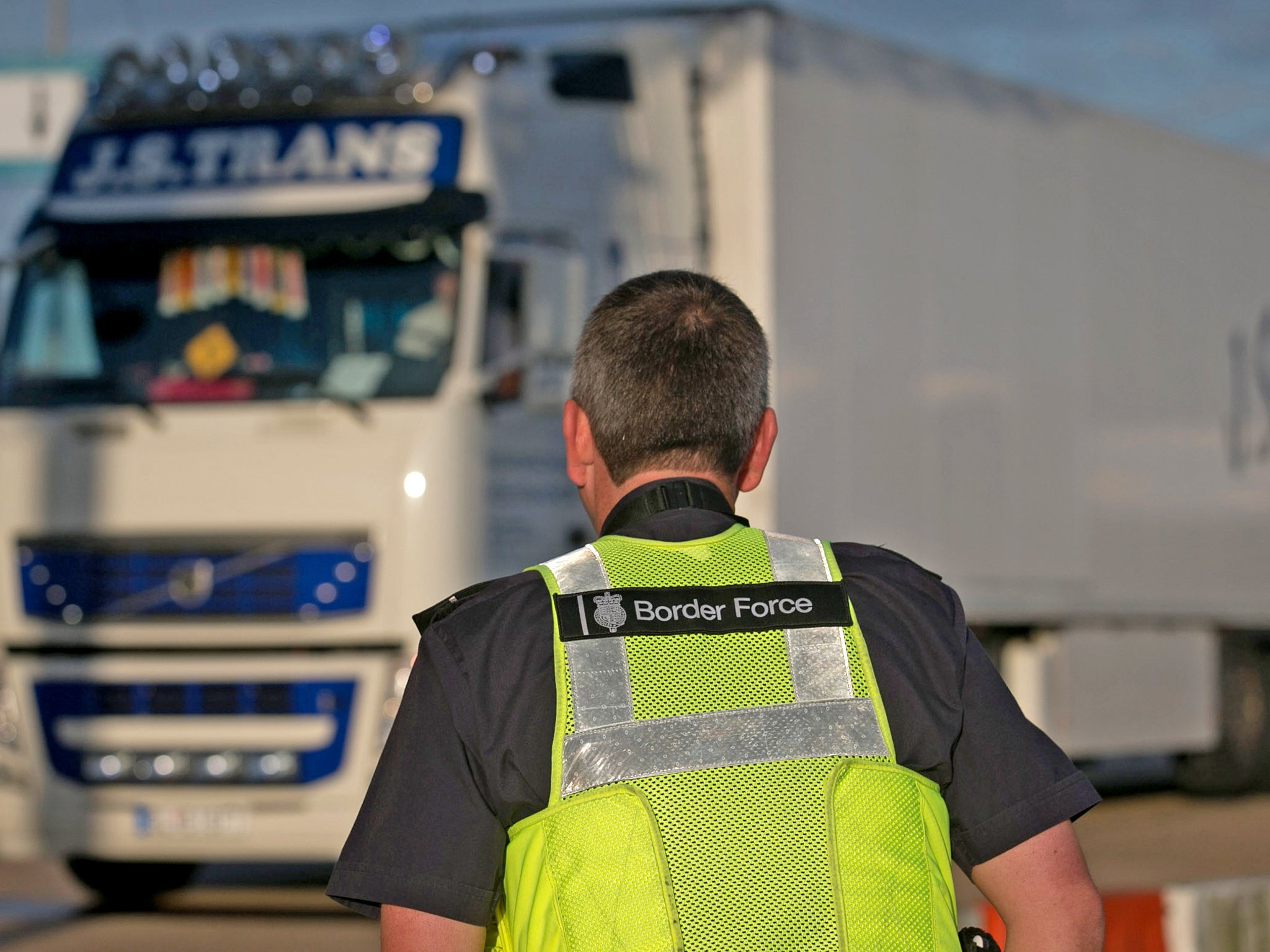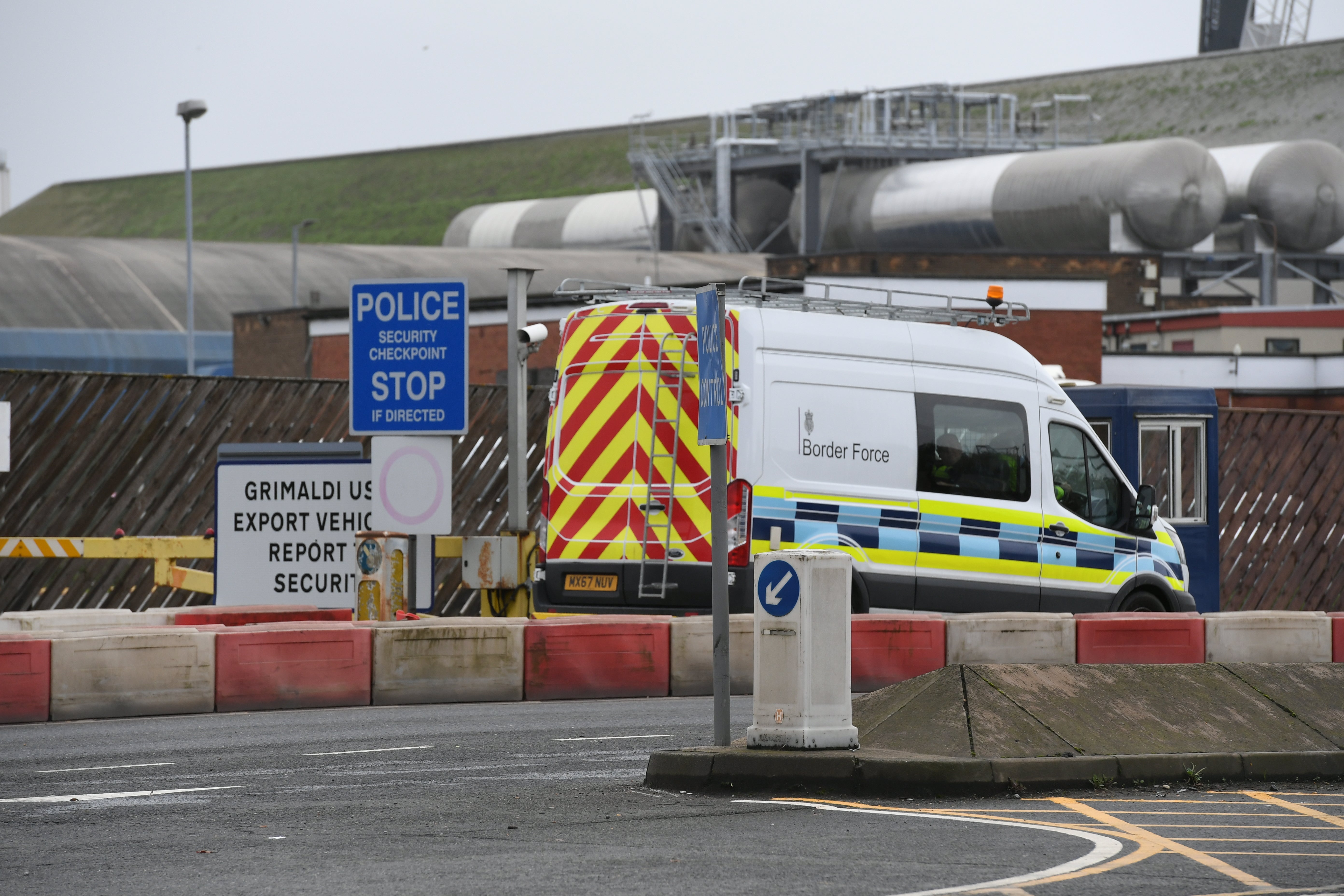
Migrant children have been handcuffed and subjected to rub-down searches in a wave of “unacceptable” treatment by UK Border Force staff, a watchdog has found.
HM Inspectorate of Prisons condemned the use of restraint on children at short-term holding facilities as “disproportionate and unacceptable”, following inspections at five airports and 10 seaports in January this year.
It cited one particularly concerning case in which a child was taken to foster accommodation in handcuffs.
The inspectorate said children were “still held for too long” at such sites, with one unaccompanied 15-year-old boy detained for 27 hours and 17 minutes.
Although it found considerable improvements in its 2020 inspection, the watchdog raised particular concerns about the treatment of children.

Eight lone children were held overnight and unaccompanied young people were generally held longer than adults – for eight hours and 23 minutes on average compared with six hours and 10 minutes.
Not all Border Force staff who came into contact with detainees, including children, had the required DBS check, the watchdog’s report noted.
Use of force was not always recorded at some sites and legal advice was not readily available to detainees. Home Office records showed that force had been used 49 times across all sites in the year leading up to the inspection – with most incidents involving handcuffs.
However, given that most detainees who arrived at seaports were routinely handcuffed, the watchdog said the figure could be higher. An incident where batons had been drawn in 2022 was also not included in the government’s figures.
Not all detainees were able to make complaints and the complaint forms were only available in English, the report said.
Although staff had a general understanding of the government’s modern slavery referral programme, some short-term holding sites had not made any referrals. The watchdog raised the case of one family who appeared to have been dropped off at Poole Ferry Terminal’s facility and who should have been referred but were not.

The inspectorate also raised concerns about how vulnerable refugees were treated.
In one incident at Tilbury, two men self-harmed after being found concealed on a ship. As they did not have permission to enter the UK and did not claim asylum, Border Force staff agreed that they should be kept in a locked room on board the vessel until it left the following day. The two men went on to escape and self-harmed again with an object they had found in their room, and were eventually taken to hospital.
Home Office records showed that 811 detainees had been held across 14 short-term sites in the six months leading up to the inspections in early 2023. However, this did not tally with local records in some cases, raising concerns that the government was underreporting the number of arrivals.
In the six months to the end of November 2022, 83 children were detained – 30 of whom were not accompanied by an adult relative.
Kama Petruczenko, senior policy analyst at the Refugee Council, said the report’s finding were “very concerning”.
She added: “It’s unacceptable that some children are handcuffed. Detaining children causes them significant harm, which is why the Coalition government decided to end this practice. Yet the new asylum bill threatens to lock up tens of thousands of children who arrive in the UK.”
A Home Office spokesperson said: “Border Force works closely with local authorities and partners to ensure the right safeguards are in place for vulnerable individuals, while also maintaining a safe and secure border.
“Any detention involving a child will be for as short a period as possible, with the best interest of the child as an overriding consideration.”







